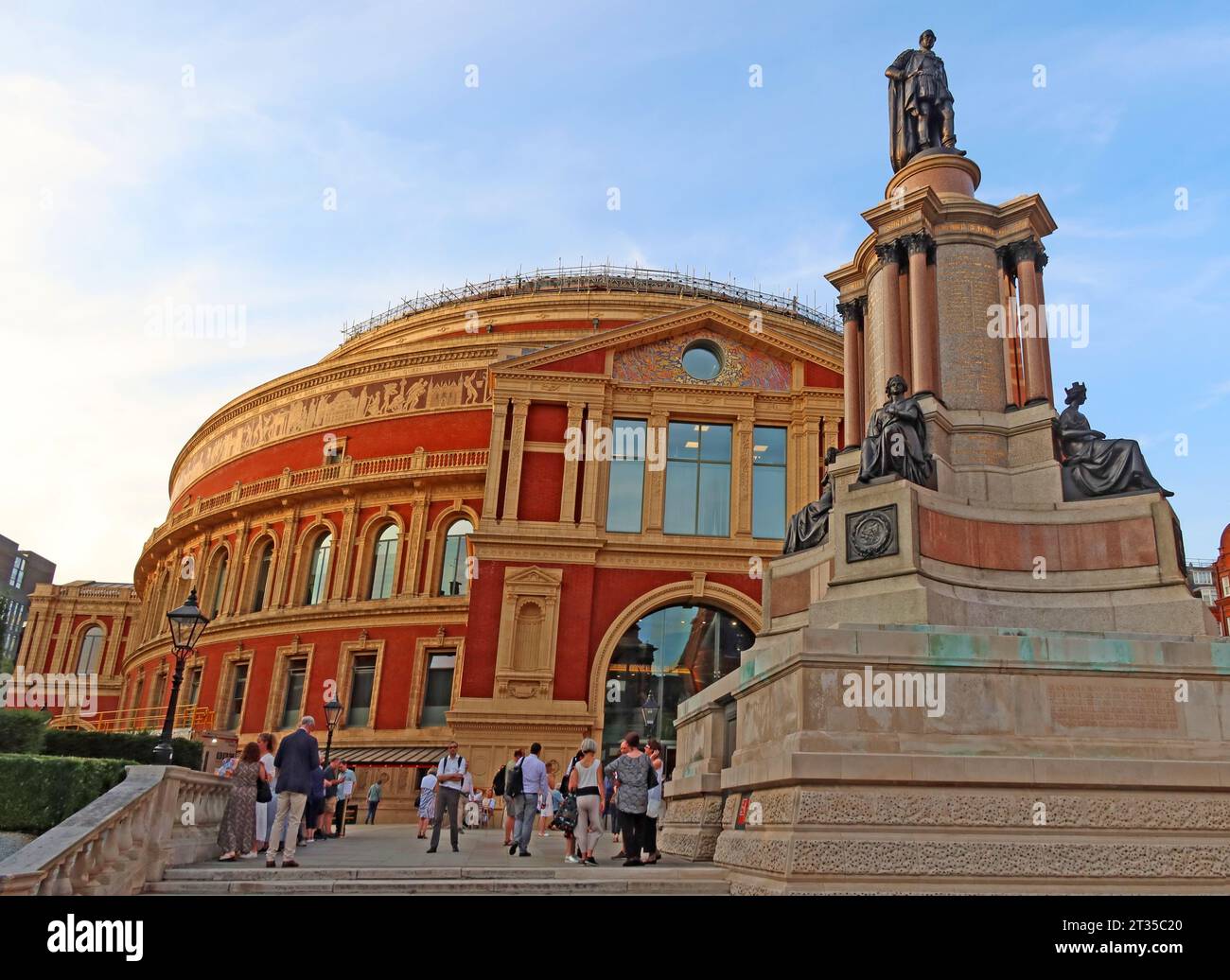The Royal Albert Hall in the evening, Kensington Gore, London, England, UK, SW7 2AP

Image details
Contributor:
Tony Smith / Alamy Stock PhotoImage ID:
2T35C20File size:
49.2 MB (1.6 MB Compressed download)Releases:
Model - no | Property - noDo I need a release?Dimensions:
4860 x 3540 px | 41.1 x 30 cm | 16.2 x 11.8 inches | 300dpiDate taken:
7 September 2023Location:
Kensington Gore, London, England, UK, SW7 2APMore information:
The Royal Albert Hall is a concert hall on the northern edge of South Kensington, London, England. It has a seating capacity of 5, 272. Since the hall's opening by Queen Victoria in 1871, the world's leading artists from many performance genres have appeared on its stage. It is the venue for the BBC Proms concerts, which have been held there every summer since 1941. It is host to more than 390 shows in the main auditorium annually, including classical, rock and pop concerts, ballet, opera, film screenings with live orchestral accompaniment, sports, awards ceremonies, school and community events, and charity performances and banquets. A further 400 events are held each year in the non-auditorium spaces. Over its 152 year history the hall has hosted people from various fields, including meetings held by suffragettes, speeches from Winston Churchill and Albert Einstein, fights by Lennox Lewis, exhibition bouts by Muhammad Ali, and concerts from regular performers at the venue such as Eric Clapton and Shirley Bassey. The hall was originally to have been called the Central Hall of Arts and Sciences, but the name was changed to the Royal Albert Hall of Arts and Sciences by Queen Victoria upon laying the Hall's foundation stone in 1867, in memory of her husband, Prince Albert, who had died six years earlier. It forms the practical part of a memorial to the Prince Consort; the decorative part is the Albert Memorial directly to the north in Kensington Gardens, now separated from the Hall by Kensington Gore. The Hall was designed by civil engineers Captain Francis Fowke and Major-General Henry Y. D. Scott of the Royal Engineers and built by Lucas Brothers. The designers were heavily influenced by ancient amphitheatres but had also been exposed to the ideas of Gottfried Semper while he was working at the South Kensington Museum